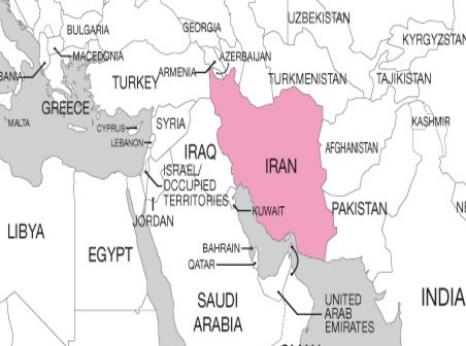Iran: Three People Risk Court-Ordered Blinding

The news on the order to implement the blinding sentences against the woman and two men emerged against the backdrop of a spike in executions and corporal punishments being carried out in Iran in 2022. Concerns over the Iranian authorities’ plans to accelerate the use of cruel, inhuman and degrading punishments were further heightened after Iran International, a Persian language media outlet based in the UK, broadcasted on 5 August 2022 a segment about a leaked confidential letter, dated 19 April 2022, and signed by the deputy head of the judiciary, Mohammad Mossadegh Kahnemoui. In the letter, he orders heads of judiciaries across the country to expedite the implementation of all qesas sentences, including against those sentenced to death and to corporal punishments such as amputation and blinding. The letter further instructs provincial judiciaries to refer qesas cases involving amputation to courts in Tehran for the sentences to be carried out centrally. The letter instructs provincial judiciaries to report on their progress in the implementation of qesas sentences.
Amnesty International has documented an alarming rise of executions and corporal punishments in 2022. In late July 2022, Abdorrahman Boroumand Centre and Amnesty International raised the alarm about Iranian authorities embarking on an execution spree, killing at least 251 people in the first six months of 2022 and warned that “if executions continue at this horrifying pace, they will soon surpass the total of 314 executions recorded for the whole of 2021” (more information can be found here). Between May and September 2022, the Iranian authorities amputated the fingers of five men at Tehran’s Evin prison using a guillotine machine. According to an informed source interviewed by Amnesty International, amputation sentences were carried out at a clinic inside Evin prison in the presence of multiple officials, including the prosecutor of Tehran, the associate prosecutor (dadyar) of Evin prison, the judge overseeing the implementation of sentences in Evin prison, the head of Evin prison and the chief doctor at the prison medical clinic (more information can be found here). At least eight other men, including Hadi Rostami, Mehdi Sharfian and Mehdi Shahivand are at risk of having their finders amputated (more information can be found here). According to the Abdorrahman Boroumand Centre, since January 2000, the Iranian authorities have amputated the fingers of at least 135 men.
On 3 March 2015, the Iranian authorities forcibly blinded a man in his left eye after he was sentenced to qesas (retribution-in-kind) for throwing acid on the eyes of another man in the city of Qom in August 2009. The blinding of his right eye was not implemented based on the victim’s request. In addition to this punishment, he was ordered to pay "blood money" (diyah) and sentenced to 10 years in prison (more information can be found here). Since then, no information has been made publicly available on judicially-sanctioned blinding being carried out, while courts continued to issue blinding sentences.
Under international law, torture means any act by which severe pain or suffering, whether physical or mental, is intentionally inflicted on a person for such purposes as punishing them for an act that they have committed or are suspected of having committed, or intimidating them or a third person, or for any reason based on discrimination of any kind. The UN General Assembly has consistently condemned torture and other ill-treatment and has called on states to investigate and prosecute them. In 1975, it adopted a Declaration on the Protection of All Persons from Being Subjected to Torture and Other Cruel, Inhuman or Degrading Treatment or Punishment, setting out the obligations of all states to investigate allegations of torture and prosecute those responsible, as well as provide redress to victims. Article 10 of the ICCPR also states that all persons deprived of their liberty must be treated “with humanity and with respect for the inherent dignity of the human person.”
Iran is a state party to ICCPR and as such is legally obliged to prohibit and punish torture in all circumstances and without exception. Despite this, Iran’s Islamic Penal Code continues to provide for corporal judicial punishments amounting to torture, including amputation, flogging, blinding, crucifixion and stoning. Iranian law requires that a physician be present during the implementation of corporal punishments, in direct violation of ethical guidelines and international standards which expressly prohibit health providers’ involvement in torture.